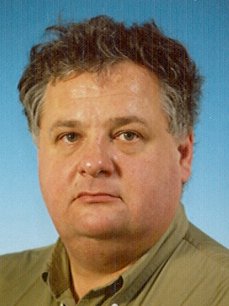László Pólos, born in Budapest, Hungary, in 1955. Ph.D. from the Hungarian Academy of Sciences, Budapest. Associate Professor of Organisations Theory at Erasmus University, Rotterdam, and Associate Professor of Logic at Eötvös Loránd University, Budapest.
Fellow (1 September 2000 – 30 June 2001)
During my NIAS Fellowship I was busy with one major and four minor projects. The major project was the formal (integrative) theory building in the social sciences in general and in organisational ecology in particular. This project has been based on close collaboration with Michael Hannan and Glenn Carroll.
As the general framework for the integrative approach we chose formal logic. To make logic a suitable framework we had to develop a tailor made non-monotonic logic. We completed both the syntax and the semantics of this logic and published some the results under the title, “Non-monotonicity in Theory Building” (in Larsen and Lomi: Simulating Organizational Universes, in press). Next to these attempts we successfully formalised two theories of organisational inertia. We managed to prove the key theorems within both theories.
We also developed formal models for organisational architectures. We used these models to specify way how information is generated and stored in organisations. This approach proved to be applicable to architectural, and technological information as well as to cultural codes/norms. We investigated the impact of architectural arrangements on organisational behaviour during change in general adaptation in particular.
We managed to complete a formal model that works as a foundation of the theory of social forms. In this work we showed how values, cultural norms, and social codes lead to the emergence of identities and forms. We published our results under the title, “Foundations of a Theory of Social Forms (Industrial and Corporate Change 2002)”. The published results generated so much interest that the Academy of Management 2002 devoted a whole symposium to discuss and expand on them.
The minor projects were carried out as attempts to apply the formal concepts and to disseminate the ideas generated during our stay at NIAS.
The formal logical framework and one of the inertia theories we developed were used to in a project with Bart Nooteboom (Erasmus Universiteit Rotterdam) to analyse organisational cognition, exploration and exploitation. The results will be published in the Journal of Evolutionary Economics under the title, “Combining Exploitation and Exploration a Formal Analysis”.
Ideas concerning age dependence of mortality hazards and that of forms and identities lead to a project with Barbara Krug (Erasmus University Rotterdam) to study Chinese entrepreneurs. The paper is currently under submission.
An empirical case study in form formation just started in collaboration with Stanislav Dobrev (University of Chicago). In this project we study the emergence on new organisational forms in telecommunication in the post communist counties. The pilot project is been carried out in Hungary.
